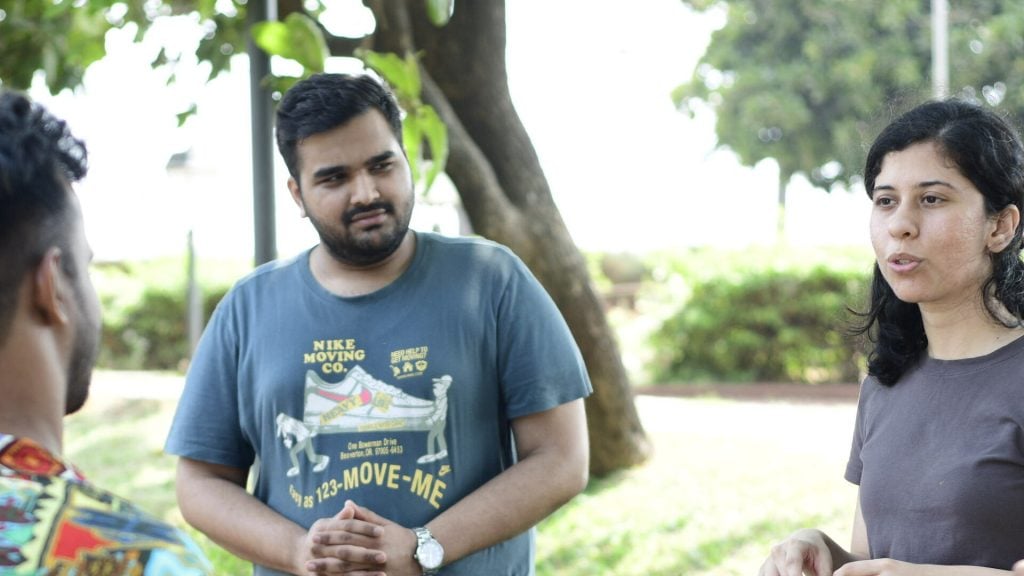
In Descent of Man, Charles Darwin states that humans ‘are led by the hope of receiving good in return to perform acts of sympathetic kindness to others; and sympathy is much strengthened by habit.’ The bystander effect, however, shows evidence of the absolute opposite. When an accident occurs on roads or otherwise, people are known to record videos rather than ensure that the victim of an accident is safely taken away by an ambulance and help is accounted for. This is sadly, the reality in most cases.
A publication in the American Scientist on Bystander “Apathy” written by Bibb Latané and John M Darley, stated, ‘Emergencies differ in many ways from other types of situations in which people need help, and these differences may be important. The very nature of an emergency implies certain consequences.’ The behavioural crux of a bystander not intervening in cases of high stakes such as a road accident is in its perceived negativity, and consequences related to being associated with the accident and putting oneself in danger as a result.
According to the Good Samaritan Bill, an Accident ‘means the unforeseen, unexpected or unintentional occurrence of an event which results in the risk of death or injury to any person and includes road, rail, water or air accident’, the bill is a good example which actively provokes bystander participation, especially when accidents and emergencies occur. The current annual death toll in reference to road accidents is over 1,40,000. ‘According to the World Health Organisation (WHO), in the absence of established emergency medical services, bystanders can play a game-changing role in saving lives. They can call for help, provide first-aid to the injured and even rush them to the nearest hospital, if an ambulance does not arrive in time’, it states on the Good Samaritan website.
Methods for bystanders as articulated by the Good Samaritan Bill to assist and ensure their rights are protected as well in the event of an accident are as follows:-
- The need to inform the police or emergency services right away without giving away personal details.
- A Good Samaritan will not be liable for any civil or criminal action for any injury or death of the victim.
- A Good Samaritan who informs the police or an emergency service regarding an injured person is not to be compelled to reveal his personal details.
- Disciplinary action can be taken against public officials who coerce a Good Samaritan to reveal his personal details.
- A Good Samaritan cannot to be forced to reveal his/her personal details: Disclosure of personal information including for the Medico Legal Case (MLC) Form is optional and voluntary.
- Good Samaritans cannot to be forced to bear the initial cost of treatment: The Ministry of Health and Family Welfare (MoHFW) has issued guidelines stating that no public or private hospital can demand payment for registration and admissions costs from the Good Samaritans.
- Hospitals cannot refuse treatment to a victim: Lack of response by a doctor in an emergency situation is to be considered as a “Professional Misconduct” and disciplinary action shall be taken against such a doctor (as per Indian Medical Council Regulations, 2002).
- The Good Samaritan can choose to be an eyewitness and cannot be compelled to report/inform the misdeed.
- Eye witness has to be examined at a single occasion.
- Examination of an eye witness to be either through:
- Video conferencing may be used for examination of a Good Samaritan
The Good Samaritan Bill has only been passed in the state of Karnataka and is a good model to involve bystanders who aid victims in the situation of an accident. However, it is understood that implementation will take time as 84% of people are not even aware of the Good Samaritan Law, to begin with. In the event of an accident, quick instructions on how to act and involve ourselves will make it easier for bystander involvement to occur. The more aware we are of our rights and laws, we are propelled to help better and to eventually stop inhabiting the role a passive bystander and be effective upstanders.
Manogni Thyagaraja is an Editorial Intern at One Future Collective.
Featured image source: Vision.org